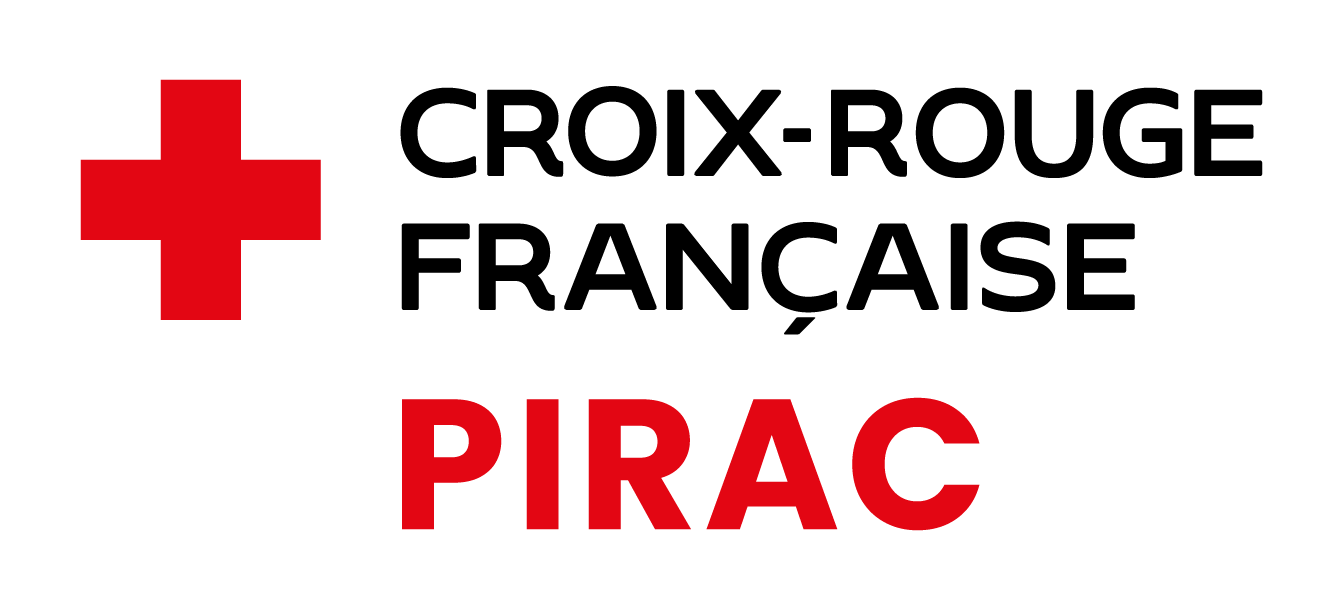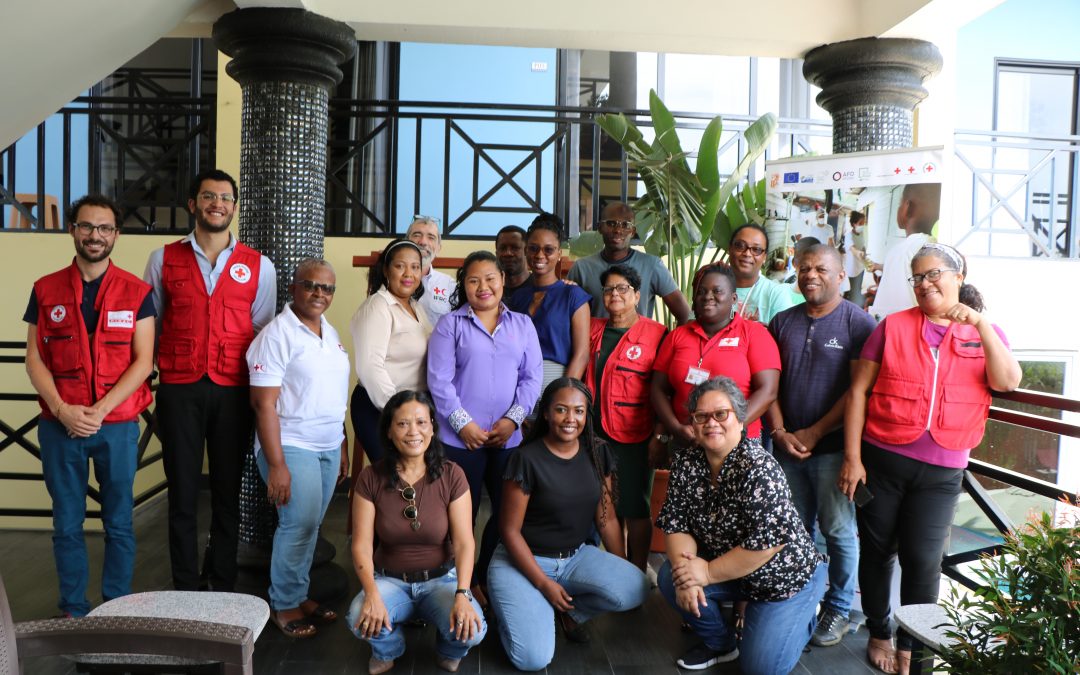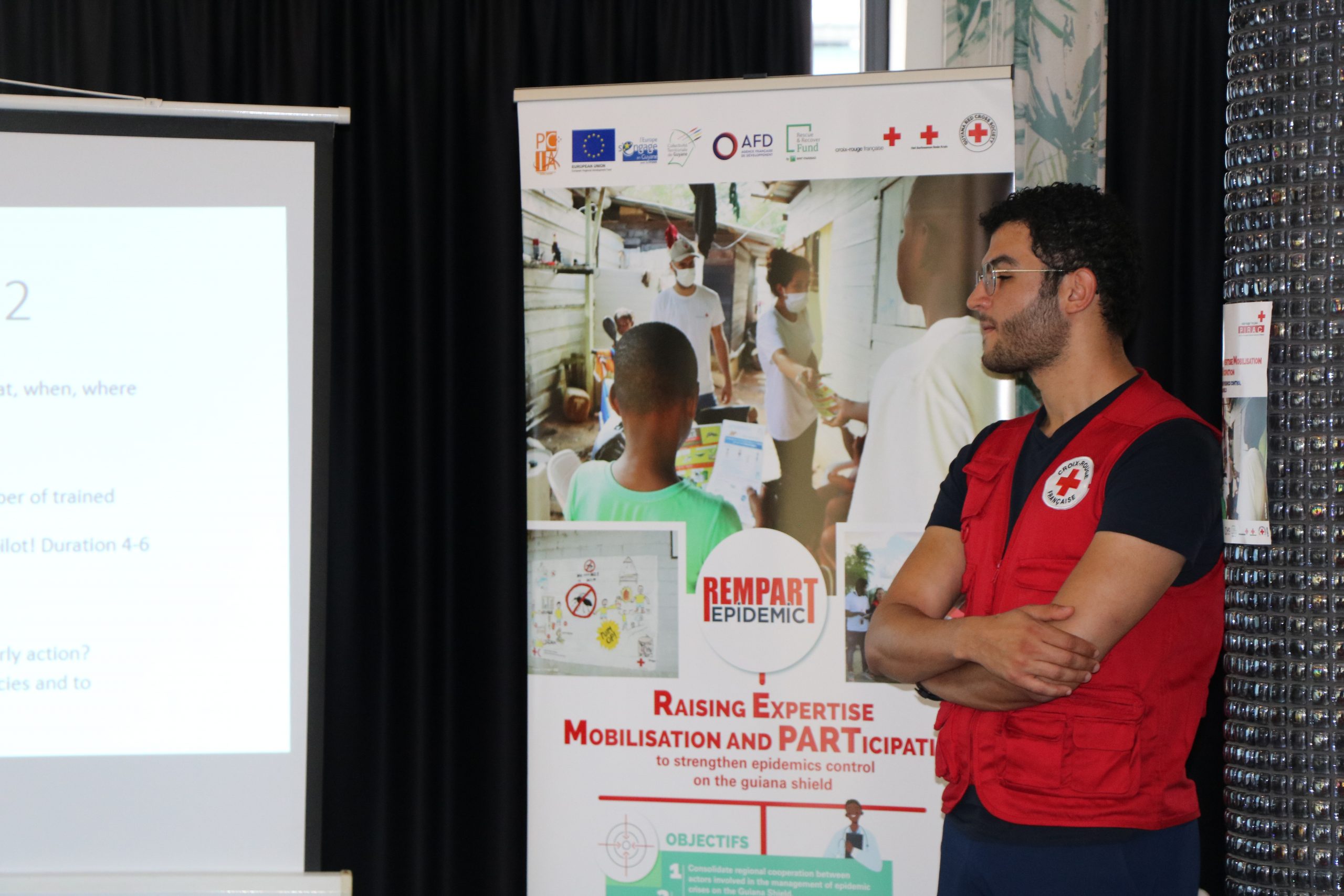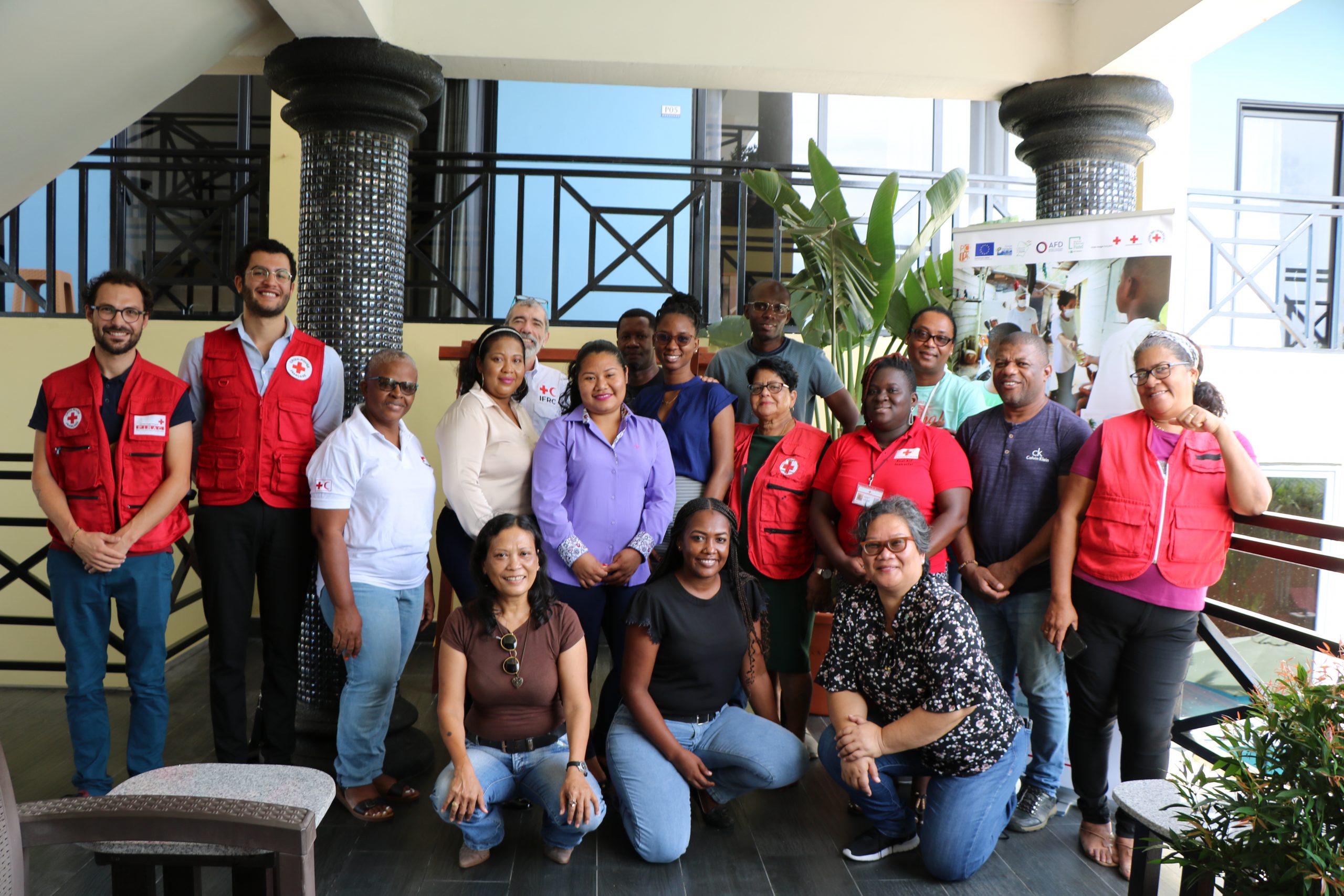The COVID-19 pandemic has focused international attention on the threat that infectious diseases pose to global health security. Habitat destruction, climate change, and the increasing interface between human and animal populations are key factors in the risk of emerging diseases with epidemic potential.
Yet, epidemics begin with the first case in a community and are not always detected early enough by health center surveillance systems. Although community members may be aware of the event, the information reaches the authorities too late to limit the spread of a disease.
To strengthen the reporting of information to health authorities, the Red Cross movement is working with its network of volunteers, partners and health authorities to facilitate the implementation of Community Based Surveillance.
PIRAC, an actor in the training of community-based surveillance
Within the framework of the REMPART Epidemic program, supported by the French Development Agency, the FEDER, PCIA, the Emergency and Development Funds of BNP Paribas and the RIPOSTE program financed by the French Development Agency, PIRAC is organizing a training session on Community Based Surveillance.
From August 30 to September 2, a training session will be held in Paramaribo, Suriname, with 15 participants, including staff and volunteers from the National Red Cross Societies of Suriname and Guyana, and representatives from the Ministries of Health of both countries.
The objective during these four days is to present Community Based Surveillance so that participants can assess the feasibility of this type of system in their territory. Working and discussion groups will be set up to facilitate exchanges and sharing of experiences between participants. Practical work will also be done.
The training is led by a pair of trainers from the International Federation of Red Cross and Red Crescent Societies and the French Red Cross.
What is Community-Based Surveillance?
Community-based surveillance is the establishment of mechanisms for the detection and reporting of health risks by community members at the local level.
The goal is to improve early detection of communicable diseases and reduce risks to human health, particularly in vulnerable populations where traditional surveillance systems and public health systems are dysfunctional.
Red Cross and Red Crescent volunteers are in an ideal position to conduct Community-Based Surveillance because they form a large network of members who can volunteer within their own communities to prevent health risks.
Community-Based Surveillance allows trained volunteers to recognize health risks or unusual events using general descriptions or “community case definitions” and to report potential alerts (often through real-time mobile reports) while conducting their daily activities in their communities.






